简体中文
繁體中文
English
Pусский
日本語
ภาษาไทย
Tiếng Việt
Bahasa Indonesia
Español
हिन्दी
Filippiiniläinen
Français
Deutsch
Português
Türkçe
한국어
العربية
Understanding Broker Regulations in the UK and Europe: Safeguarding Traders' Interests
Abstract:In the dynamic world of Forex trading, regulatory frameworks serve as the bedrock of trust between traders and brokers. For traders in the UK and Europe, understanding the laws governing brokers is paramount. These regulations not only ensure ethical practices but also provide a sense of security, assuring traders that their investments are in safe hands. Here's a comprehensive overview of the laws around brokers in the UK and Europe.
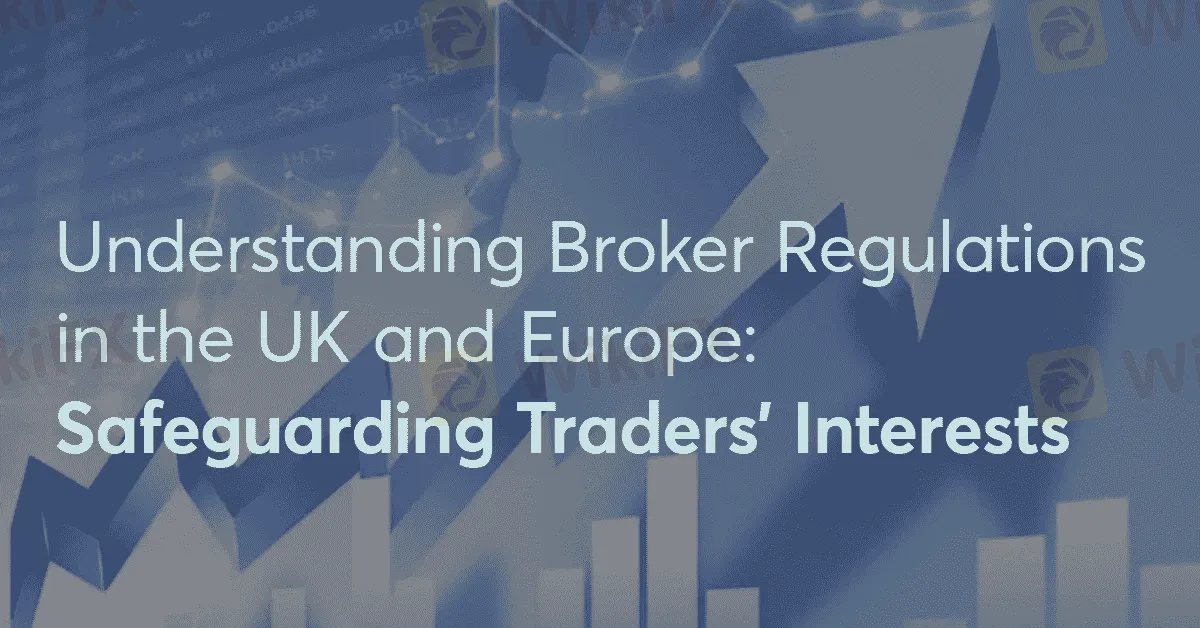
In the dynamic world of Forex trading, regulatory frameworks serve as the bedrock of trust between traders and brokers. For traders in the UK and Europe, understanding the laws governing brokers is paramount. These regulations not only ensure ethical practices but also provide a sense of security, assuring traders that their investments are in safe hands. Here's a comprehensive overview of the laws around brokers in the UK and Europe.
United Kingdom (UK):
In the UK, Forex brokers are primarily regulated by the Financial Conduct Authority (FCA). The FCA is a renowned regulatory body known for its stringent standards and investor protection measures. Brokers operating in the UK must obtain FCA authorization, which involves rigorous scrutiny of their financial stability, operational integrity, and adherence to ethical practices.
One of the key aspects of FCA regulation is the Financial Services Compensation Scheme (FSCS). This scheme protects traders by compensating them up to £85,000 per person per institution if a regulated broker becomes insolvent. This safety net provides traders with a significant level of assurance, ensuring that even in adverse circumstances, their funds are protected.
Moreover, the FCA enforces strict rules regarding client fund segregation. Regulated brokers are required to keep clients' funds separate from their operational funds. This separation ensures that traders' money is not used for the broker's operational expenses, providing an additional layer of security.
European Union (EU):
In Europe, the regulatory landscape for Forex brokers underwent significant changes with the implementation of the Markets in Financial Instruments Directive (MiFID II). MiFID II is a comprehensive set of regulations designed to harmonize financial markets within the EU and enhance investor protection.
Under MiFID II, brokers must adhere to robust client protection measures, ensuring transparency and fairness in their dealings with traders. The directive mandates stringent risk disclosure requirements, ensuring that traders are fully aware of the risks associated with Forex trading before they engage with brokers. Brokers are obligated to provide detailed information about their services, fees, and potential conflicts of interest.
Additionally, MiFID II emphasizes best execution principles. This means that brokers must execute trades at the best possible terms for their clients, considering factors such as price, speed, likelihood of execution, and settlement size. These principles safeguard traders from unfair practices and price manipulations, fostering a level playing field in the market.
Post-Brexit Changes:
In the aftermath of Brexit, the UK established its own regulatory framework, maintaining its high standards of investor protection. Brokers operating in both the UK and Europe must navigate the complexities of dual regulations if they wish to provide services to traders in both regions. This duality underscores the importance of careful consideration and due diligence on the part of brokers and traders alike.
In conclusion, the laws around brokers in the UK and Europe are designed with the best interests of traders in mind. These regulations aim to create a transparent, secure, and fair trading environment. For traders, it is imperative to verify a broker's regulatory status before engaging in any trading activities. By choosing regulated brokers, traders not only protect their investments but also contribute to the overall integrity and stability of the Forex market, ensuring a safer trading experience for everyone involved.

Disclaimer:
The views in this article only represent the author's personal views, and do not constitute investment advice on this platform. This platform does not guarantee the accuracy, completeness and timeliness of the information in the article, and will not be liable for any loss caused by the use of or reliance on the information in the article.
Read more
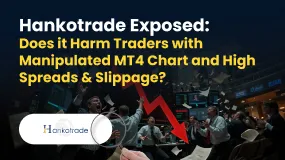
Hankotrade Exposed: Does it Harm Traders with Manipulated MT4 Chart and High Spreads & Slippage?
Have you witnessed a manipulated MT4 chart on Hankotrade login, showing inaccurate trading figures? Have you been victimized by high swap fees, inflated spreads, and massive slippage? Is the payment processing time too long at Hankotrade? Do you face downtime issues, especially when the New York trading session is on? These are some top complaints against the Belize-based forex broker. In this article, we have shared these complaints. Take a look!
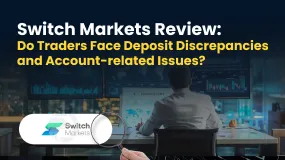
Switch Markets Review: Do Traders Face Deposit Discrepancies and Account-related Issues?
Do you fail to deposit your funds into the Switch Markets forex trading account? Earned profits, withdrew them too, but did Switch Markets block your deposits? Wanted to close your trading account due to payment-related issues, but in turn got your emails blocked by the Australia-based forex broker? Faced a negative trading account balance because of illegitimate trade order execution? Many traders have shared these stories about Switch Markets on broker review platforms. In this Switch Markets review article, we have mentioned the same. Read on!
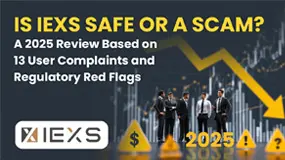
Is IEXS Safe or a Scam? A 2025 Review Based on 13 User Complaints and Regulatory Red Flags
You're asking a direct and important question: Is IEXS safe or a scam? As someone who might trade with them or already does, this is the most important research you can do. While IEXS says it is a global broker with over ten years of experience, a detailed look at its regulatory status and many user reviews shows serious warning signs that cannot be ignored. The evidence suggests a high-risk situation for traders' capital. This review will examine the available information, from official regulatory warnings to concerning first-hand user complaints, to give you a clear and fact-based view of the risks involved in trading with IEXS. Our goal is to give you the facts you need to make a smart decision.
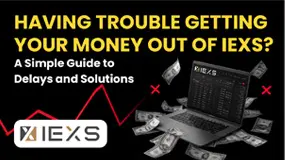
Having Trouble Getting Your Funds Out of IEXS? A Simple Guide to Delays and Solutions
Are you having trouble withdrawing funds from your IEXS account or facing delays getting your funds? Not being able to access your own capital is one of the most stressful situations any trader can face. It breaks down your basic trust with a broker. This isn't just annoying - it's a serious problem that can mess up your financial plans and cause a lot of worry. This guide goes beyond basic advice. We'll look at real user experiences and official regulatory information to give you clear answers. Our goal is to help you understand why IEXS withdrawal problems happen and show you practical steps you can take. We understand your concerns and want to give you the information you need to handle this tough situation.
WikiFX Broker
Latest News
150 Years Of Data Destroy Democrat Dogma On Tariffs: Fed Study Finds They Lower, Not Raise, Inflation
FIBO Group Ltd Review 2025: Find out whether FIBO Group Is Legit or Scam?
Is INGOT Brokers Safe or Scam? Critical 2025 Safety Review & Red Flags
Trillium Financial Broker Exposed: Top Reasons Why Traders are Losing Trust Here
Amillex Withdrawal Problems
IEXS Review 2025: A Complete Expert Analysis
IEXS Regulation: A Complete Guide to Its Licenses and Safety Warnings
Oil and gas giant Wood plc sold to Dubai engineering firm
FONDEX Review: Do Traders Really Face Inflated Spreads & Withdrawal Issues?
【WikiEXPO Global Expert Interviews】Ashish Kumar Singh: Building a Responsible and Interoperable Web3
Currency Calculator



